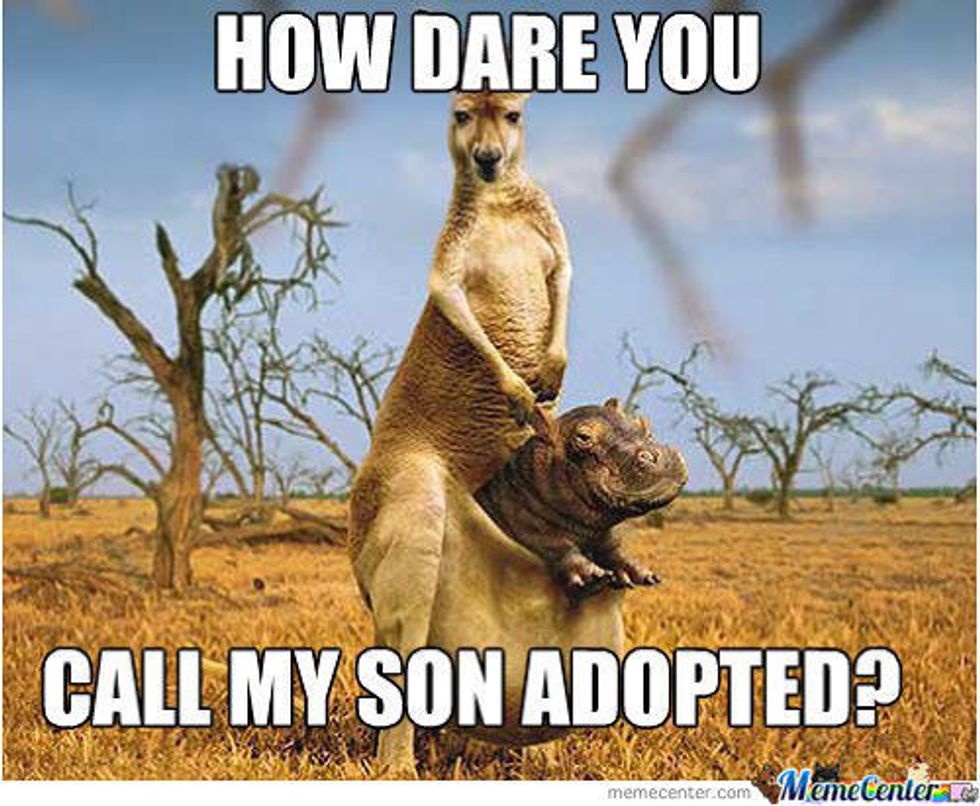My racial background has always been, to me, a large part of my identity. To others, it quickly becomes a subject of intrigue. Many people who I meet for the first time find themselves surprised when I explain “where I am from.” My mother is African American and my father is Caucasian. Surprisingly, even growing up even in the 20th century, there have been multiple struggles I, and others of a similar ethnic background, have experienced.
1. Finding a barber.
If you are a guy, then frequent visits to your local barber are a must to keep yourself looking presentable. Having “sampled” countless barber shops and salons, I can say that there are a limited number of stylists out their capable of taming my strange and inconsistent set of curls -- a problem many of my biracial friends. So when we do find said barber or salon, they become our go-to.
2. Strangers want to feel our hair.
Alright, so this is the last one on my list regarding hair. For me, this phenomenon seemed to disappear after high school. However, I found it awkward when classmates decided to make their first impression by satisfying their curiosity of what my hair feels like. They achieved this, of course, by spontaneously stroking my scalp. Their eyes would light up as they became become one of the lucky few to experience the wool-like texture of biracial hair. I still have not found a proper way to respond to this.
3. My mother is not my nanny.

Have you ever gone on a walk with your mother, only to have a stranger approach and say, “Wow! What a cute baby? Who are you watching him for?” Or maybe your mother has tried picking you up from school, and your teacher assumes her child must be of her complexion. Unfortunately, that child is not you. No, it is the student next to you. There are countless variations of mixed heritage, but if your parents have very different skin tones, then some people may have difficulty connecting your mother to you.
4. People telling me what I am not.
“I'm black.”
“You're black? No you're not! Don't lie!”
Someone asks you where you are from. You dodge what you know is the real question, by explaining the actual location of where you live and where you were born. But finally, you stop beating around the bush and give them the answer. However, you are somehow wrong. Your answer is, in fact, unsatisfactory. With a sufficient amount of evidence, you can convince them that what you are saying is true. But, do you really want to have to prove your ethnicity to everyone you meet?
5. I do not speak Spanish.
If you are lucky, a stranger will ask what your ethnicity is, and then you can explain. However, there are some who will just assume. Given my complexion, I appear Hispanic to many people. Countless times I have been approached by a stranger who would start speaking to me in Spanish. Even worse, if I do not quickly explain why I can not respond in Spanish, the stranger may assume I was denied my heritage. Sometimes, under this assumption, they will even become offendedDespite the skepticism and misunderstandings some people may have regarding my ethnic background, I still embrace my racial identity. Personally, it's the peculiarities and the curiosity it attracts that allow me to take even more delight in being biracial. Our diverse families and rich heritage are things to embody and take pride in.






 mr and mrs potato head
StableDiffusion
mr and mrs potato head
StableDiffusion










